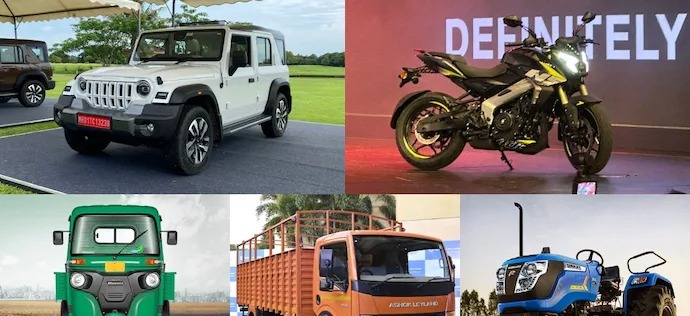- November 16, 2024
45 lakh target missed, but new record set as 42.88 lakh vehicles sold in festive period

The Indian automotive industry recently celebrated a significant achievement, albeit with a slight sense of unmet expectations, as it wrapped up the festive season sales figures for 2024. While the target of 45 lakh vehicle sales during the festive period was missed, the industry still set a new record by selling 42.88 lakh vehicles, surpassing the previous high. This result, despite falling short of the ambitious target, underscores the robust demand and the ongoing recovery in the automotive sector, which has been grappling with the effects of the pandemic, supply chain issues, and global economic uncertainties in recent years. The festive period, which typically includes the high-demand months of September through November, has historically been the peak time for car and two-wheeler sales in India, driven by a combination of consumer optimism, lucrative offers, and the cultural significance of festivals like Diwali. The Indian automotive market is deeply influenced by the country’s festive calendar, with Diwali being the most important event for carmakers and two-wheeler manufacturers. Consumers traditionally consider the festive season to be an auspicious time to make big-ticket purchases, including cars, motorcycles, and scooters. As a result, automakers ramp up production, offer attractive discounts, and launch new models to capitalize on the surge in demand. For years, this period has been a key driver of the industry’s annual sales performance, contributing to a significant portion of the total sales for the year. The target of 45 lakh vehicles, set by industry associations and major automakers, was an ambitious one. It reflected the industry’s optimistic outlook based on strong consumer sentiment, the easing of pandemic-related restrictions, and an overall recovery in the economy. However, despite the shortfall from this target, the record sales of 42.88 lakh vehicles indicate that the automotive market in India is well on its way to a full recovery and could potentially see even better performance in the coming months and years. Several factors contributed to the slight miss in the sales target for the festive period. One of the key reasons for not reaching the 45 lakh target is the ongoing supply chain challenges, particularly in the availability of semiconductors. While the global semiconductor shortage had impacted the automotive industry for much of 2022 and 2023, its effects lingered into the early part of 2024. This shortage has forced several automakers to scale back production or delay the launch of new models, limiting the number of vehicles available for sale during the high-demand period. Additionally, inflationary pressures and the rising cost of raw materials, including steel, aluminum, and plastics, have led to higher vehicle prices. While automakers have passed on some of these costs to consumers, it may have had an impact on the affordability of vehicles, particularly for price-sensitive customers. While the general sentiment in the market remains positive, some segments of the population, particularly in rural areas, may have been reluctant to make large purchases due to concerns about rising prices. Another factor at play is the evolving consumer preference in the Indian market. While demand for passenger vehicles, especially compact SUVs, and two-wheelers has remained strong, the shift toward electric vehicles (EVs) has been somewhat slower than expected. Although EV sales have grown significantly in recent years, the pace at which consumers are transitioning from internal combustion engine (ICE) vehicles to electric vehicles is gradual. The lack of sufficient charging infrastructure, high upfront costs of EVs, and the limited range of some electric models continue to be concerns for many buyers, especially in rural areas. This shift in consumer preferences, along with the need for further incentives and government support, might have kept overall sales from hitting the 45 lakh mark. Despite missing the 45 lakh target, the sale of 42.88 lakh vehicles during the festive period represents a record-breaking achievement. This indicates that the demand for vehicles in India remains strong, with millions of consumers still willing to make significant investments in personal mobility. A closer look at the numbers reveals that the two-wheeler segment continued to be a major driver of sales, with millions of motorcycles and scooters being sold, especially in smaller towns and rural areas, where two-wheelers are often seen as essential for daily transportation.
The post 45 lakh target missed, but new record set as 42.88 lakh vehicles sold in festive period first appeared on InfluencersPro.


